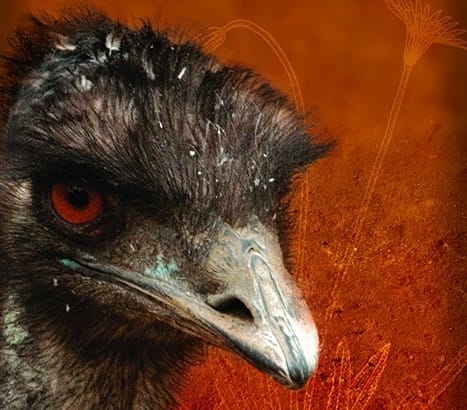It’s one thing to write and publish a non-fiction book with a controversial point of view, but quite another for such a book to end up on the Australian Curriculum, and taught to students as fact.
Which is what has happened with Bruce Pascoe’s 2014 book Dark Emu: Black Seeds: Agriculture or Accident. In Dark Emu, Pascoe postulates that rather than being nomadic hunter-gatherers as they were hitherto labelled by anthropologists, Aboriginal Australians were living as agriculturalists before Australia was colonised.
According to Pascoe the reason why Aboriginal Australians were wrongly labelled as hunter-gatherers was due to a conspiracy “perpetuated to justify white occupation.” The book has been lauded in the literary community, and the views expressed in it are now taught in Australian schools. Pascoe has recently published Young Dark Emu for primary school aged students, and the ABC is producing a TV series with Pascoe, due for release in 2020.
Pascoe’s conspiratorial views have become mainstream.
But a new book by Peter O’Brien Bitter Harvest: The Illusion of Aboriginal Agriculture in Bruce Pascoe’s Dark Emu challenges Pascoe’s narrative. In the book it is revealed “that Pascoe omits, distorts or mischaracterises important information to such an extent that, as purported history, Dark Emu is worthless.”
O’Brien considers himself an expert on two of the main historical sources referenced by Pasco in Dark Emu: the diaries and journals of early Australian explorers Charles Sturt and Thomas Mitchell. O’Brien’s forensic analysis reveals serious flaws in Pascoe’s research and conclusions. His conclusion is that Dark Emu is a book of “egregious deception.”
As noted by Keith Windschuttle, historian and author, even Pascoe’s aboriginal heritage is disputed. Perth retired author Jan Campbell has conducted thorough research on Pascoe’s genealogy which reveals that his ancestry is all English – there is no trace of Aboriginal descent at all!
Quadrant magazine recently published three articles addressing this historical and literary fraud:
The Epicentre of our History – Keith Windschuttle
A ‘Dark Emu’ Ally Flips the Bird at Truth – Peter O’Brien
The Bogus Aboriginal World of Bruce Pascoe – Peter O’Brien
Why isn’t the mainstream media reporting on this?
Bitter Harvest: The Illusion of Aboriginal Agriculture in Bruce Pascoe’s Dark Emu is available here.

4 Comments
Andrew Bolt has recently been critical of the claims in the book ‘Dark Emu’ that Australian aborigines had villages with stone walled buildings and undertook agriculture. A test of these claims may be found in aboriginal art. As far as I am aware cave paintings and rock art show images of people, some in the act of hunting, many are simply hand silhouettes and of land and sea animals. The later sometimes are of sufficient detail that the individual species of the animal can be identified.
However I am not aware of any art showing buildings or agricultural activities. These activities are common in art from cultures in developed societies so they could be expected to appear in aboriginal art if their society had developed to the level claimed by author Brian Pascoe indicating that his claims are probably fiction – just like CO2 induced climate change.
There are many historic books available online which give an excellent understanding of early Australian life……….which Pascoe should have read before perpetrating his fraud.
“The Australian Race” , EM Curr, 1888, Vols 1 to 3, is basically a tribe by tribe account of Australia around the time of settlement.
“The Booandik Tribe”, “Squatting in Victoria”, “The Aborigines of Victoria and the Riverina”, “Native Tribes of Central Australia,” “The Tribes of South Australia,” “The Descent of Man”, etc etc. All before 1900, describe aboriginals as being without agriculture.
This is fiction from start to finish.
Firstly, contrary to what Pascoe claims he is NOT aboriginal and multiple reviews of his ancestry all show his ancestors are English.
Secondly, the contents of this fictional publication does not stand up to critical appraisal. None of the journals or diaries of people back in the 18th & 19th century make any mention of aboriginal agriculture, stone buildings or aboriginal towns. Furthermore, there is no suggestive evidence to back Pascoe’s claims.
It’s all a fiction.
Bitter Harvest exposes the outrageous fraud by the author of Dark Emu. With the twitterverse ‘a absolute acceptance of the distortion of history in Dark Emu we can only be thankful that a REAL expert is willing to rectify the record. All thinking people should read Bitter Harvest.